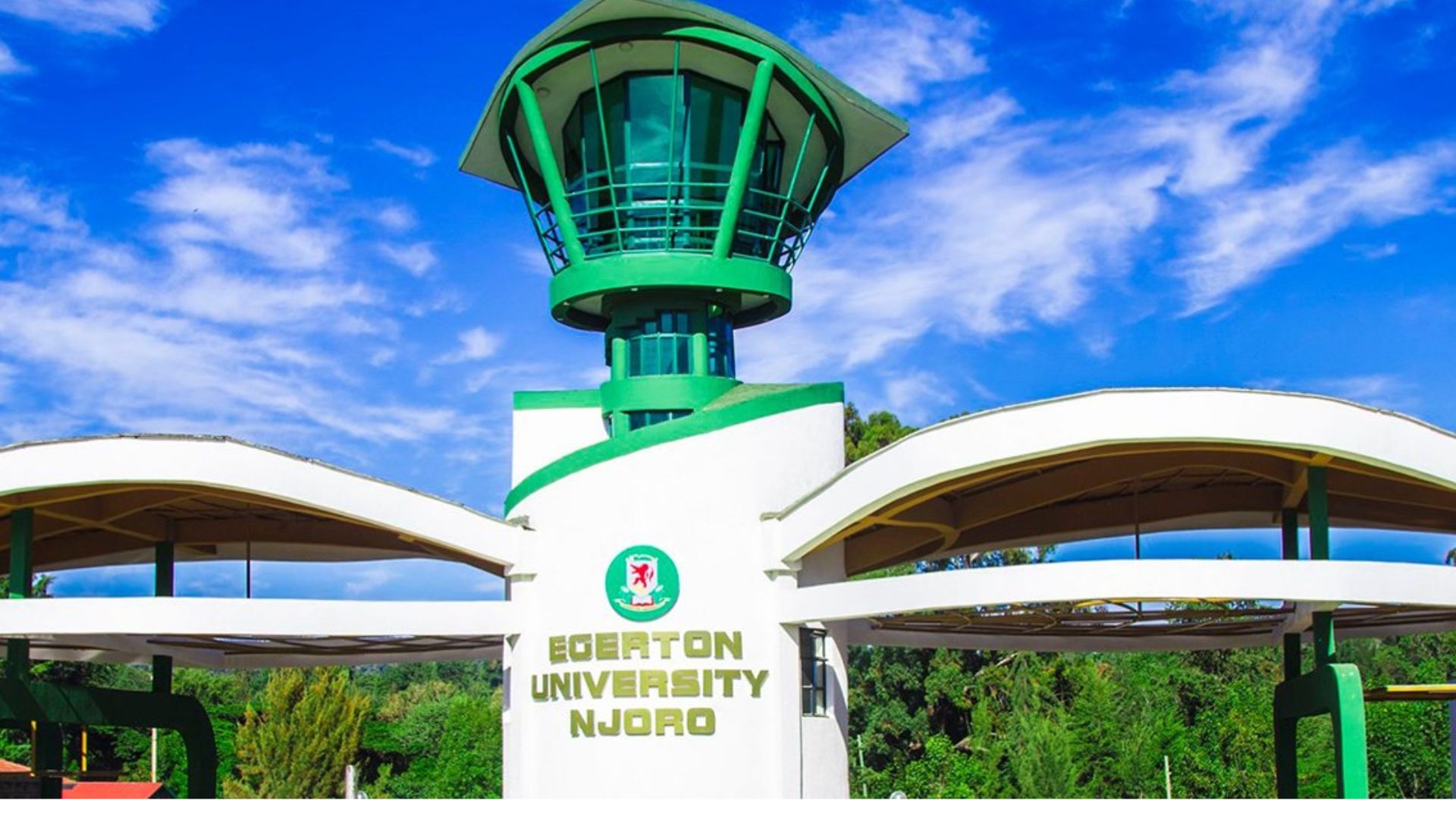40 students from Egerton University have traveled to Israel to study advanced agriculture and water technology in order to acquire knowledge that will aid in addressing the nation’s food insecurity.
Prof. Isaac Kibwage, vice chancellor of the university, stated that the students would travel to Israel for an 11-month intensive training program at various modern universities and colleges while studying at modern fundamental farms.
Under the agricultural program known as the Arava International Centre for Agriculture Training (AICAT), according to the Vice Chancellor, 40 Egerton University Students will be trained in a variety of agricultural fields, including animal husbandry, cereal production, and aquaculture.
The VC stated that the graduates would be expected to submit agricultural project proposals for implementation in Nakuru and neighboring counties upon graduation.
Prof. Kibwage says the university is confident that they are going to employ the technological skills acquired in Israel to make an impact in our Kenya.
The group consisting of 28 men and 12 women, are going to study at the AICAT Campus in Mercaz Sapir, a region that is in proximity to 15 associated with farming neighborhoods that, according to Prof. Kibwage, features an assortment of farms and homesteads, including field crops and plantings, dairy operations, barns, farm and cowsheds.
Early in 2016, the governments of Kenya and Israel signed an agreement known as “The Jerusalem Declaration” or the “Declaration on Collaboration in Water and Irrigation” that would allow recent college graduates to participate in an 11-month training program in Israel.
The agreement stipulated that successful candidates for the free-to-participate program will receive air tickets in the form of loans, which they will pay back during or after the internship involving practical training. During training, they are required to participate in on-farm production activities.
The purpose of the apprenticeship, which takes place in the Arava region in southern Israel’s desert, is to expose students to the region’s advanced agricultural technologies.
As he and AICAT Director Mrs. Hanni Arnon signed a Memorandum of Understanding on behalf of the two institutions, the Vice Chancellor stated that the students would also receive intensive training in agricultural production, the application of hybrid seeds and effective water use, water resources, wastewater treatment, recycling and reuse, and irrigation, with an emphasis on developed efficient water use technology.
According to the Vice Chancellor, the action would facilitate the government’s agenda, particularly ensuring that there is sufficient sustenance in the country.
He noted that food security and sustenance were two of the government’s top priorities, with water serving as a catalyst.
Prof. Micah Chepchieng, director of the Egerton University Board of Undergraduate Programs (BUGS), expressed optimism that the training would broaden the students’ horizons and expose them to cutting-edge agricultural practices in Israel.
Prof. Chepchieng highlighted the University’s dedication to cultivating a culture of academic excellence and experiential learning.
Prof. Paul Kimurto, director of marketing and resource mobilization, noted in his remarks that the training opportunity represented not only a chance to acquire specialized knowledge but also to develop cross-cultural understanding and cultivate international friendships.
Prof. Kimurto remarked, “We hope that this experience will be transformative and inspire them to become change agents in their communities.” The University will engage with these students upon their return and learn from their experiences abroad. This is to access and manage the knowledge they bring back to enhance the academic program of the university.
He stated that the country would no longer rely on rain to produce sufficient food, but would instead seek alternative solutions by utilizing technology to combat drought issues in the region.
Mrs. Arnon, the director, stated that Israel had made it possible for over one thousand Kenyan students to pursue agriculture.
Agriculture in the Arava is the vanguard of modern and sophisticated agriculture in Israel, utilizing cutting-edge technology in the harshest arid conditions.
Despite the fact that Israel is a desert, it has made significant advances in agriculture and, through the use of modern technology, has been able to produce surplus food for its population.
Follow Teachers Updates on Facebook, LinkedIn, X (Twitter), WhatsApp, Telegram, and Instagram. Get in touch with our editors at [email protected].



Discussion about this post